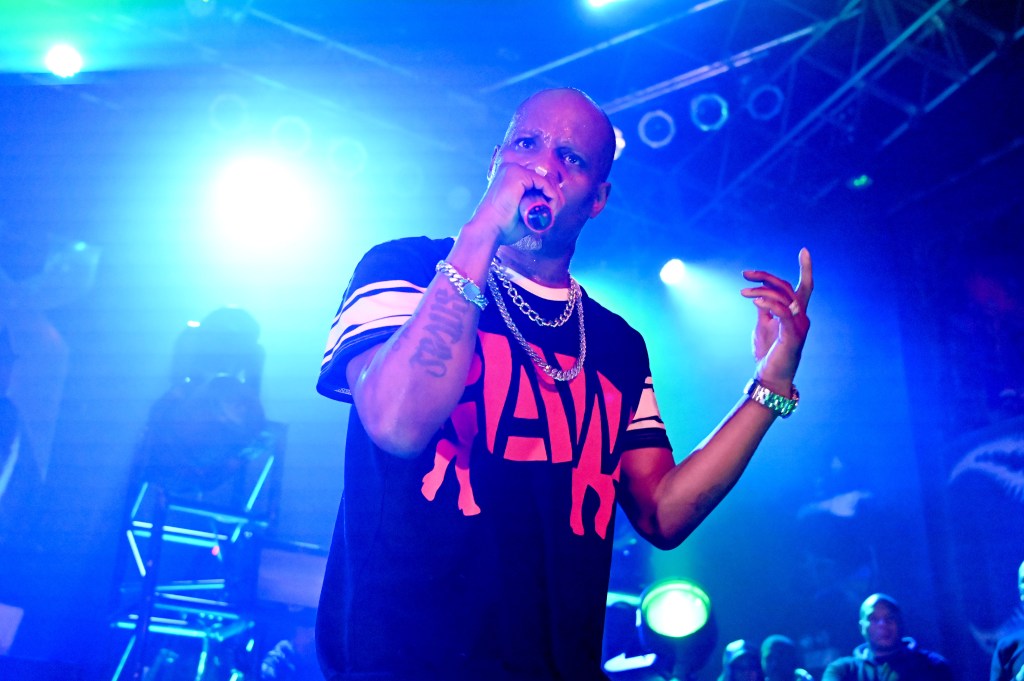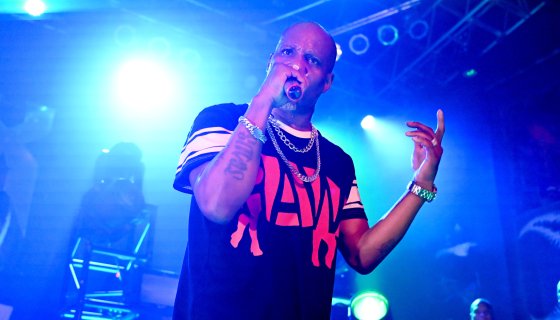
Source: Adam Bielawski/WENN.com / WENN
DMX, whose given name is Earl Simmons, died on April 9 after spending a week on life support. He was just 50, more than two decades short of his expected time on earth. Sometimes life is cruel that way.
But not even death could kill moralistic-infused conjectures about DMX’s past drug use and its potential role in his untimely demise. “DMX suffered a drug overdose… [and this] …triggered a heart attack,” TMZ reported before anyone else. Like hungry sharks in pursuit of prey, other media outlets pounced on the story, devoured it, and shared it without deviating. Reactions on social media varied from sympathetic responses like this one: “Addiction is a lifelong battle” to just plain cruel ones like this: “If you do drugs, then death is what you deserve.”
The funny thing is that—and not “ha ha” funny—there has yet to be confirmation that drugs were even involved in DMX’s death. According to White Plains Hospital officials, his death was caused by “a catastrophic cardiac arrest.” A heart attack took out DMX, just as it did fifty-two-year-old Black Rob (aka Robert Ross) only a few days ago. Heart ailments also were factors in the deaths of Big Buff of the Fat Boys (Darren Robinson: age 28), Big Pun (Christopher Lee Rios: age 28), Heavy D (Dwight Arrington Myers: age 43), and Lord Infamous (Ricky T. Dunigan: age 40). In fact, heart disease is the leading cause of death in the United States, killing six hundred thousand-plus Americans every year.
But rather than initiate a national conversation aimed at helping people to identify heart disease symptoms or informing them of available prevention or treatment strategies, the press, public, and policy-makers are far more interested in the convenient “drugs are bad” narrative. Never mind that most drug use occurs without causing problems such as addiction or overdose. You would be hard-pressed to find a story about, say, crack or heroin, without its focus being almost entirely on some negative outcome.
This familiar script allows journalists to tell a sexier tale, brimming with clickbait for the undiscerning reader; it also reinforces misguided notions about the unpredictability of drug effects, which enables authorities to divert attention away from more pressing legitimate concerns, like heart disease, racism, poverty, substandard education, and un-and under-employment.
For argument’s sake, though, suppose a drug precipitated DMX’s heart attack. What drug or drugs might be the culprit? Crack? Marijuana? One of the writers of this piece (Dr. Carl Hart) has given thousands of doses of both to people as part of his research and carefully studied the immediate and delayed responses without incident. Sure, these drugs can, in rare cases, exacerbate preexisting heart problems. But, in general, their effects on the heart are comparable to those that occur when people engage in intense exercise. Frankly, if DMX was otherwise healthy, it’s unlikely that crack or marijuana caused his heart attack.
Granted, because many recreational drugs are prohibited, consumers are forced to obtain their drugs of choice from illicit, unregulated markets, where there aren’t any quality controls. Thousands of Americans have died from ingesting drugs contaminated with poisons, impurities, and other unknown substances. One practical solution is to make available free, anonymous drug-purity testing services. People can submit small amounts of their drug for testing to determine the sample’s content and its dose. If a sample contains adulterants, users would be informed. This sensible approach is used in several others countries, including Austria, Colombia and Spain.
There is a broader point to be made, though. If we, as a society, truly believe in the ideals enshrined in our founding document—Life, Liberty, and the pursuit of happiness for all—then it is incumbent upon us to use our knowledge and skills to help keep others safe, even if they choose to use drugs. You cannot profess to care about people, as you besmirch and discard them for what they choose to put in their own bodies. That’s hypocritical; it’s un-American, too.
There was a time, back in Nancy Reagan’s America, when merely promoting slogans that urged people to “Just Say No” to drugs was viewed as virtuous, compassionate, even enlightened. We now know that such sanctimony increased unwarranted stigma associated with drug use and pushed many users into the shadows of society where drug use is unnecessarily riskier. Also, it can decrease the likelihood of those in need of treatment seeking it for fear of being ridiculed.
DMX reportedly struggled with cocaine addiction. Unfortunately, the “help” he received was woefully inadequate. In 2013, for example, he appeared on Iyanla Fix My Life, a reality TV show hosted by life coach Iyanla Vanzant. DMX expected to reunite with his son. Instead, he was interrogated with a barrage of questions probing whether he was on the wagon. Then, he was informed that his privilege to visit with his son was dependent on his abstinence. This punitive approach falls far short of best treatment practices.
It would be extremely helpful if drug treatment was taken out of the hands of self-proclaimed gurus and placed in the care of qualified professionals. At minimum, the treatment team should comprise a social worker, a psychologist, a physician, among other health professionals. In addition to treating medical and mental health problems, crucial social services should be provided.
Undoubtedly, DMX had a challenging life starting in childhood where he dealt with physical abuse and parental abandonment. Life as rap star wasn’t easy either. The constant pressure to produce hit recordings always loomed large as well as myriad other unrealistic expectations and life stressors. All these stressors, of course, can lead to a host of pathological conditions, including hypertension and heart disease.
We look forward to the day when heart disease prevention captivates national attention more than sensationalistic cautionary tales about celebrities’ drug use. We also look forward to the day when people suffering from addiction are treated with the kind of dignity afforded autonomous adults. When that day comes, we will be closer to heeding DMX’s words: “I wish you believed me as easily as you believe these random people who talk about me.”
Carl L. Hart (@drcarlhart) is a professor in the departments of psychology and psychiatry at Columbia University and the author of Drug Use for Grown-ups: Chasing Liberty in the Land of Fear.
Damon X (@damonxavierhart) is a Hip-Hop artist.
HipHopWired Radio
Our staff has picked their favorite stations, take a listen…

